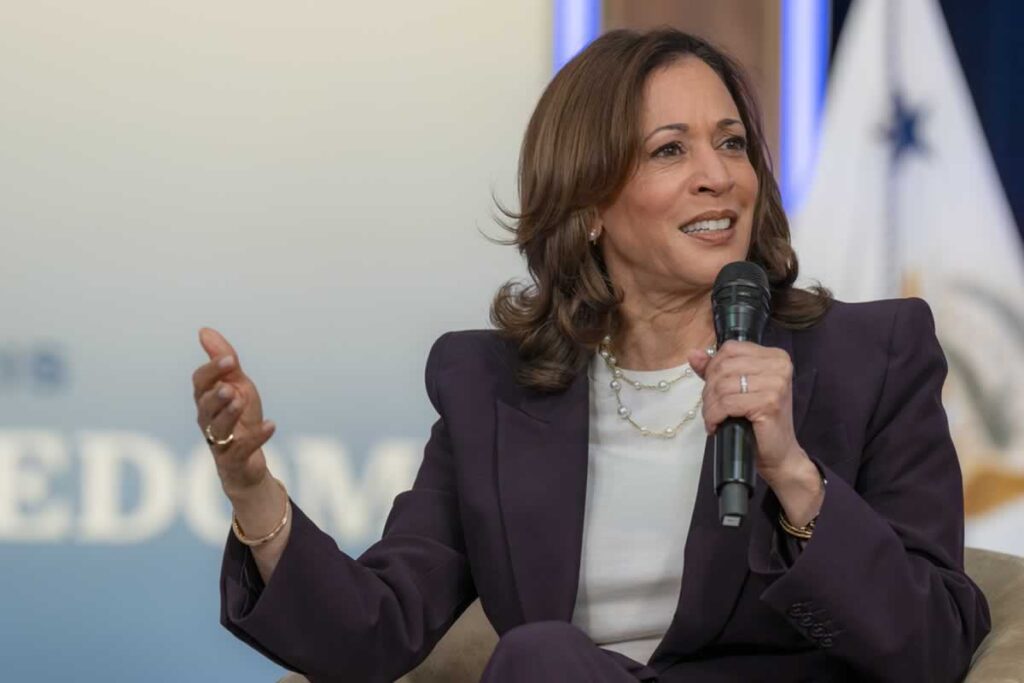Vice President Kamala Harris, who is the Democratic nominee for the 2024 presidential election, unveiled her economic plan on Friday, which includes measures to address the escalating housing costs. She pledged that if she is elected, she will streamline the process of building homes and offer tax incentives to first-time homebuyers.
“There is a significant housing shortage in many areas, making it challenging to construct new homes and causing prices to soar,” Harris stated during her inaugural major policy address in Raleigh, North Carolina on Friday afternoon. “If I become president, I will collaborate with the industry to construct the necessary housing for both rental and ownership. We will eliminate obstacles and reduce bureaucratic hurdles, including those at the state and local levels.”
The economic plan also features a $25,000 tax incentive for down payments for individuals purchasing their first homes. This amount surpasses the one-year tax credit of up to $10,000 for middle-class families selling their starter homes, as announced by President Joe Biden during the State of the Union address in March 2024.
During that same address, Biden proposed an annual tax credit of $5,000 for two years for first-time homebuyers in the middle class. However, analysts speculate that the current Congress members are unlikely to approve this credit.
“As the housing prices continue to rise, the size of down payments has also increased. Even after years of saving, many aspiring homeowners find it insufficient,” Harris remarked. “While we address the housing shortage, my administration will offer first-time homebuyers $25,000 towards their new home’s down payment.”
Experts in the housing industry acknowledge that Harris has correctly identified the key issues affecting today’s housing market, such as high mortgage rates and limited listings. However, they express concerns that her initiatives could raise demand, exacerbating the supply shortage problem.
During her speech in Raleigh, Harris also mentioned her plans to introduce a one-year child tax credit of $6,000 and reduce prescription drug costs if she wins the election.
Rental Market
Harris has pledged to eliminate America’s housing shortage by constructing 3 million new affordable homes for the middle class by the end of her first term. The proposal includes advancing the Stop Predatory Investing Act on Capitol Hill.
“As you are aware, some corporate landlords purchase numerous houses and apartments, renting them out at exorbitant rates, making it unfeasible for regular individuals to buy or rent a home,” she stated.
“Certain corporate landlords engage in collusion to set artificially high rental prices, often utilizing algorithms and price-fixing software. This practice is anti-competitive and drives up expenses. I will advocate for legislation that curbs these practices.”
Regarding the rental market, Harris previously mentioned efforts to ban hidden fees and surprise late charges imposed by banks and other companies to boost their profits, along with initiatives to combat unfair rent hikes by corporate landlords.
The Democratic nominee’s speech resonates with Americans who frequently cite housing costs as a top concern. Despite recent trends, the housing landscape in America remains costly for many, accounting for approximately 70% of the total household debt, as noted by Nick Luettke, an associate economist at Moody’s.
Luettke highlighted that over the past decade, the multifamily sector has expanded its inventory by nearly 25%. Despite a 20% increase in effective rents since late 2019, there has been a 1% year-over-year decline recently.
“Considering income growth, the median-income household currently allocates 26.8% of their income towards an average apartment. Although rent prices remain high for many, the national rent-to-income ratio has decreased by 2% since the peak in 2022 and by 1% since the start of the pandemic, underscoring the crucial role of inventory expansion in enhancing affordability,” Luettke stated.
Related

